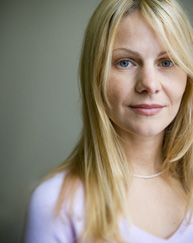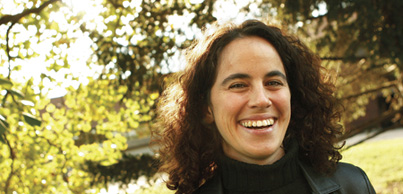Headliners: Voice from the past, predictor of the future
Headliners: Voice from the past, predictor of the future McGill University
User Tools (skip):
HEADLINERS
Voice from the past, predictor of the future
10-second song, 15 minutes of fame
Jonathan Sterne has been getting lots of play in the North American media following the recent discovery of the oldest audio recording ever made. McGill's Chair in Art History and Communication Studies, Sterne was interviewed by the New York Times and the LA Times about the significance of the 10-second clip of an anonymous singer singing "Au Claire de la Lune" recorded on April 9, 1860 – 17 years before Thomas Edison patented the phonograph. "Just to hear that little snippet of sound is, like, wow, I am communing with the past," said Sterne. "We are playing back a recording that was never meant to be heard." Spoken like a true audiophile.
Premature births linked to autism

Autism alert
Claudio Calligaris
A study led by Catherine Limperopoulos of the School of Physical and Occupational Therapy, has shown that some 25 percent of babies born very prematurely demonstrated signs of autism on an early screening test. As reported in USA Today, the results, though preliminary, suggest that these earliest preemies may face an increased risk in developing autism. Limperopoulos suggested that this increased rate could be one of the unfortunate prices we pay as medical advances enable even the smallest premature babies to survive.
Cartwheeling climate
McGill's influence is felt far and wide. China's People's Daily recently ran an article reviewing a paper published in the journal Trends in Ecology and Evolution.

Water woes
Owen Egan
Co-authored by McGill's Elena Bennett of the Department of Natural Resource Sciences, Garry Peterson of the Department of Geography and Line J. Gordon of the Stockholm Resilience Centre, the paper warns that human agriculture and land-use practices are permanently altering ecosystems in catastrophic ways that will ultimately hit poorest regions the hardest. These "ecosystem flips" can rob populations of resources they are dependent on – an example being rapid soil degradation in parts of sub-Saharan Africa that can devastate farmer's yields. "You go past a tipping point where it's very difficult to reverse," said Bennett.

